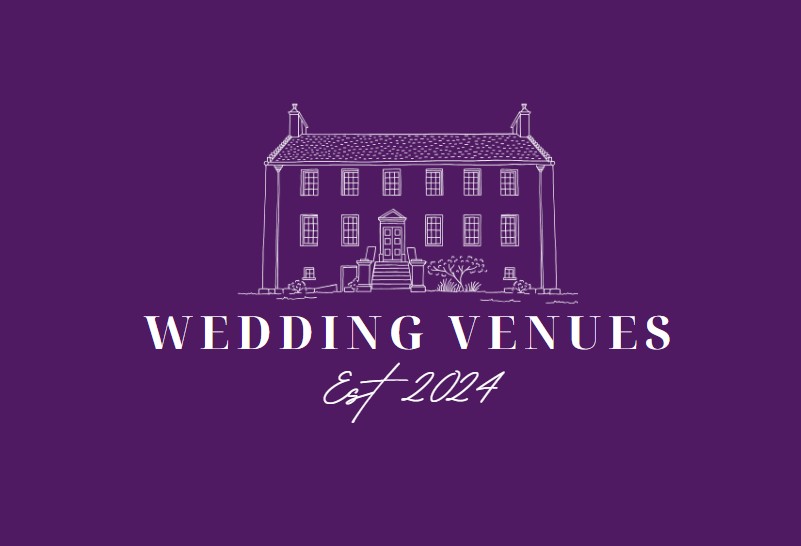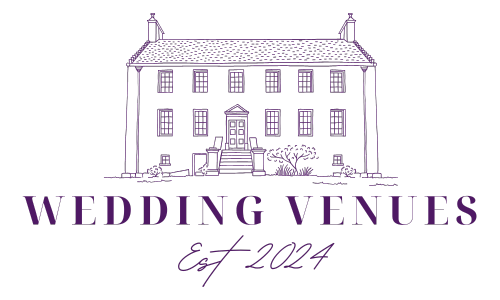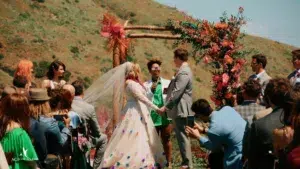FAQs - Frequently Asked Questions
Spanish Wedding FAQs
What is the best time of year to get married in Spain for optimal weather ?
 Spain’s Mediterranean climate offers long, sun-filled summers and mild winters, but selecting the ideal wedding date means balancing reliable weather with budget-friendly rates. The peak season, from late May through early October, ensures minimal rainfall and warm temperatures (average daytime highs of 25 °C to 32 °C), ideal for al fresco ceremonies, beach receptions and vineyard soireés. However, venues and suppliers raise their prices in these months to capitalise on demand. For a compromise, consider the “shoulder seasons”: late April to mid-June and mid-September to early October. During these windows, daytime temperatures generally range between 18 °C and 26 °C, accompanied by lower humidity and fewer tourists, allowing you to secure attractive rates, often 15 % to 25 % below midsummer pricing, while still enjoying predominantly dry conditions. If you’re open to a winter celebration, November through February can yield the deepest discounts (up to 40 % off), although you should plan for indoor-focused events and potential rain. Finally, choosing a weekday or an off-peak date can further stretch your budget, as many venues offer mid-week and non-peak-month packages at reduced hire fees and complimentary extras.
Spain’s Mediterranean climate offers long, sun-filled summers and mild winters, but selecting the ideal wedding date means balancing reliable weather with budget-friendly rates. The peak season, from late May through early October, ensures minimal rainfall and warm temperatures (average daytime highs of 25 °C to 32 °C), ideal for al fresco ceremonies, beach receptions and vineyard soireés. However, venues and suppliers raise their prices in these months to capitalise on demand. For a compromise, consider the “shoulder seasons”: late April to mid-June and mid-September to early October. During these windows, daytime temperatures generally range between 18 °C and 26 °C, accompanied by lower humidity and fewer tourists, allowing you to secure attractive rates, often 15 % to 25 % below midsummer pricing, while still enjoying predominantly dry conditions. If you’re open to a winter celebration, November through February can yield the deepest discounts (up to 40 % off), although you should plan for indoor-focused events and potential rain. Finally, choosing a weekday or an off-peak date can further stretch your budget, as many venues offer mid-week and non-peak-month packages at reduced hire fees and complimentary extras.
![]() Shoulder seasons (late April–mid June; mid September–early October): mild weather (18 °C–26 °C) and 15 %–25 % cost savings
Shoulder seasons (late April–mid June; mid September–early October): mild weather (18 °C–26 °C) and 15 %–25 % cost savings
![]() Peak summer (late May–early October): near-guaranteed sunshine but premium rates and higher accommodation costs
Peak summer (late May–early October): near-guaranteed sunshine but premium rates and higher accommodation costs
![]() Winter months (November–February): greatest discounts (up to 40 % off) with indoor venue options and potential rain
Winter months (November–February): greatest discounts (up to 40 % off) with indoor venue options and potential rain
![]() Weekday or off-peak dates: negotiate 10 %–30 % reductions on venue hire and catering by avoiding weekends and holidays
Weekday or off-peak dates: negotiate 10 %–30 % reductions on venue hire and catering by avoiding weekends and holidays
![]() Regional variations: coastal areas stay warmer longer; inland and northern regions enjoy cooler summers and off-season deals
Regional variations: coastal areas stay warmer longer; inland and northern regions enjoy cooler summers and off-season deals
What off-peak dates or weekday specials can we negotiate with Spanish venues?
 By selecting non-peak dates or weekdays, couples can unlock significant savings and greater supplier availability. Weekday weddings (Monday–Thursday) routinely qualify for 10–30 % discounts on venue hire and catering, as venues aim to fill quieter slots without displacing lucrative weekend business. Off-peak months, November to March, excluding the festive season—see demand dip, enabling negotiations of up to 40 % off standard rates; indoor-friendly venues become particularly attractive during cooler months. Shoulder-season midweek dates in April, May or September combine mild weather with lower rates, often around 20 % below peak-summer prices. Some venues also offer special packages for bank-holiday eves (for example, 1 May or 15 August), as hotels seek to maximise occupancy. When negotiating, request a rate grid illustrating date-specific pricing to pinpoint the best value. Bundling key services, catering, décor and accommodation, can further leverage discounts by guaranteeing the venue multiple revenue streams. Always secure negotiated terms in writing as contract addenda to prevent any misunderstandings.
By selecting non-peak dates or weekdays, couples can unlock significant savings and greater supplier availability. Weekday weddings (Monday–Thursday) routinely qualify for 10–30 % discounts on venue hire and catering, as venues aim to fill quieter slots without displacing lucrative weekend business. Off-peak months, November to March, excluding the festive season—see demand dip, enabling negotiations of up to 40 % off standard rates; indoor-friendly venues become particularly attractive during cooler months. Shoulder-season midweek dates in April, May or September combine mild weather with lower rates, often around 20 % below peak-summer prices. Some venues also offer special packages for bank-holiday eves (for example, 1 May or 15 August), as hotels seek to maximise occupancy. When negotiating, request a rate grid illustrating date-specific pricing to pinpoint the best value. Bundling key services, catering, décor and accommodation, can further leverage discounts by guaranteeing the venue multiple revenue streams. Always secure negotiated terms in writing as contract addenda to prevent any misunderstandings.
![]() Explore weekday dates (Monday–Thursday) for 10–30 % reductions on hire and catering
Explore weekday dates (Monday–Thursday) for 10–30 % reductions on hire and catering
![]() Target off-peak months (November–March) for the deepest discounts—up to 40 % off
Target off-peak months (November–March) for the deepest discounts—up to 40 % off
![]() Choose shoulder-season midweek dates in April, May or September for balanced weather and cost savings
Choose shoulder-season midweek dates in April, May or September for balanced weather and cost savings
![]() Inquire about special rates for bank-holiday eves to capitalise on venue occupancy goals
Inquire about special rates for bank-holiday eves to capitalise on venue occupancy goals
![]() Bundle services (catering, décor, accommodation) to negotiate comprehensive package discounts
Bundle services (catering, décor, accommodation) to negotiate comprehensive package discounts
What legal requirements and paperwork are needed for a civil wedding in Spain?
 To contract a civil marriage in Spain, both parties must submit documentation well in advance to the local Civil Registry (Registro Civil) where the marriage will take place. Key requirements include proof of identity and civil status, evidence of legal capacity to marry, and (where applicable) proof of termination of any previous marriages. Non-Spanish nationals typically need additional documentation from their home country, translated into Spanish and officially legalised (see Question 3 for details). Once the paperwork is accepted, the couple must complete a “declaration of intent to marry” and undergo a short interview to confirm their free will. A public notice period (banns) of at least 15 days may apply, though this can sometimes be waived for non-residents or in exceptional circumstances.
To contract a civil marriage in Spain, both parties must submit documentation well in advance to the local Civil Registry (Registro Civil) where the marriage will take place. Key requirements include proof of identity and civil status, evidence of legal capacity to marry, and (where applicable) proof of termination of any previous marriages. Non-Spanish nationals typically need additional documentation from their home country, translated into Spanish and officially legalised (see Question 3 for details). Once the paperwork is accepted, the couple must complete a “declaration of intent to marry” and undergo a short interview to confirm their free will. A public notice period (banns) of at least 15 days may apply, though this can sometimes be waived for non-residents or in exceptional circumstances.
![]() Submission to the local Registro Civil at least one month before the planned date
Submission to the local Registro Civil at least one month before the planned date
![]() Valid passports or national identity cards for both partners
Valid passports or national identity cards for both partners
![]() Certificates of birth and civil status (single, divorced or widowed)
Certificates of birth and civil status (single, divorced or widowed)
![]() Divorce decree absolute or death certificate if previously married
Divorce decree absolute or death certificate if previously married
![]() Declaration of intent (“Nota de Petición de Matrimonio Civil”)
Declaration of intent (“Nota de Petición de Matrimonio Civil”)
![]() Attendance at a brief registry interview
Attendance at a brief registry interview
![]() Compliance with the 15-day public notice (banns) period
Compliance with the 15-day public notice (banns) period
Can we have a symbolic ceremony in Spain and complete the legal registration in our home country?
 Yes. Many couples choose to hold a purely symbolic ceremony in Spain, often officiated by a celebrant or friend, without registering the marriage locally, then complete the legal formalities at home. Symbolic ceremonies are entirely flexible, allowing you to tailor readings, rituals and venues without legal constraints. However, you must ensure that your home country will recognise a Spanish symbolic ceremony only if you also complete a civil or religious registration according to local law. Be aware that some countries require proof of residency or specific documentation that may differ from Spanish requirements. Always verify with your home registry which documents they will accept as proof of intent or as part of the marriage registration process.
Yes. Many couples choose to hold a purely symbolic ceremony in Spain, often officiated by a celebrant or friend, without registering the marriage locally, then complete the legal formalities at home. Symbolic ceremonies are entirely flexible, allowing you to tailor readings, rituals and venues without legal constraints. However, you must ensure that your home country will recognise a Spanish symbolic ceremony only if you also complete a civil or religious registration according to local law. Be aware that some countries require proof of residency or specific documentation that may differ from Spanish requirements. Always verify with your home registry which documents they will accept as proof of intent or as part of the marriage registration process.
![]() Organise celebrant-led symbolic ceremony without involving Registro Civil
Organise celebrant-led symbolic ceremony without involving Registro Civil
![]() Confirm home-country marriage registration process and document requirements
Confirm home-country marriage registration process and document requirements
![]() Obtain personalised certificates or letters of intent from Spanish celebrant (where possible)
Obtain personalised certificates or letters of intent from Spanish celebrant (where possible)
![]() Plan legal civil or religious ceremony at home to ensure international recognition
Plan legal civil or religious ceremony at home to ensure international recognition
![]() Retain all Spanish invoices, programmes or witness statements to support legal registration
Retain all Spanish invoices, programmes or witness statements to support legal registration
What documents must be translated and apostilled for a wedding in Spain?
 Foreign documents intended for use in Spain must be officially translated into Spanish by a sworn translator (traductor jurado) and, if issued outside the Hague Convention, legalised via apostille or through consular channels. The most common documents include birth certificates, certificates of no impediment (or single status affidavits), divorce decrees and death certificates. Translations must bear the translator’s stamp and signature, and apostilles must be affixed by the competent authority in the issuing country. Some local registries may also require a literal translation (traducción literal) and an additional “sworn statement” from the translator confirming accuracy.
Foreign documents intended for use in Spain must be officially translated into Spanish by a sworn translator (traductor jurado) and, if issued outside the Hague Convention, legalised via apostille or through consular channels. The most common documents include birth certificates, certificates of no impediment (or single status affidavits), divorce decrees and death certificates. Translations must bear the translator’s stamp and signature, and apostilles must be affixed by the competent authority in the issuing country. Some local registries may also require a literal translation (traducción literal) and an additional “sworn statement” from the translator confirming accuracy.
![]() Birth certificates and passports: sworn (jurada) translation + apostille
Birth certificates and passports: sworn (jurada) translation + apostille
![]() Certificates of no impediment or single status affidavits: translation + apostille
Certificates of no impediment or single status affidavits: translation + apostille
![]() Divorce deeds or death certificates: translation + apostille
Divorce deeds or death certificates: translation + apostille
![]() Translator’s official stamp and signature on each document
Translator’s official stamp and signature on each document
![]() Local Consular legalisation if apostille is not accepted
Local Consular legalisation if apostille is not accepted
![]() Check specific requirements with the target Registro Civil
Check specific requirements with the target Registro Civil
How long does the civil registry process typically take in Spain?
 From initial submission to obtaining a marriage licence, the civil registry process in Spain can span 4–8 weeks, though processing times vary by region and local workload. The standard waiting period is a minimum of 15 calendar days (banns) after declaring your intent to marry, designed to allow any legal impediments to surface. Once that period lapses and your application is approved, you can schedule the ceremony, often requiring an additional 2–4 weeks’ notice for official availability. Delays may occur if documentation is incomplete, translations are pending or the Registry demands supplementary evidence, so it is advisable to start the process at least three months before your desired wedding date.
From initial submission to obtaining a marriage licence, the civil registry process in Spain can span 4–8 weeks, though processing times vary by region and local workload. The standard waiting period is a minimum of 15 calendar days (banns) after declaring your intent to marry, designed to allow any legal impediments to surface. Once that period lapses and your application is approved, you can schedule the ceremony, often requiring an additional 2–4 weeks’ notice for official availability. Delays may occur if documentation is incomplete, translations are pending or the Registry demands supplementary evidence, so it is advisable to start the process at least three months before your desired wedding date.
![]() Minimum 15-day public notice (banns) period
Minimum 15-day public notice (banns) period
![]() 2–4 weeks for registry appointment scheduling
2–4 weeks for registry appointment scheduling
![]() Total lead time: plan for 4–8 weeks of processing
Total lead time: plan for 4–8 weeks of processing
![]() Extra time if documents need translation, apostille or consular legalisation
Extra time if documents need translation, apostille or consular legalisation
![]() Potential regional variations—Madrid vs. rural Registro Civil
Potential regional variations—Madrid vs. rural Registro Civil
What residency rules apply for legally marrying in Spain?
 Spain does not impose a strict residency requirement on foreign nationals wishing to marry; however, some local registries may request proof of at least two months’ habitual residence in their district. To avoid complications, many non-residents choose to register with municipal authorities and obtain a certificate of temporary residence (certificado de empadronamiento) from the town hall (ayuntamiento). This document confirms your address in Spain and may satisfy regional registry rules. Alternatively, you can apply for the special “Bodas Express” procedure in larger cities, which waives residency when the wedding is urgent, subject to availability.
Spain does not impose a strict residency requirement on foreign nationals wishing to marry; however, some local registries may request proof of at least two months’ habitual residence in their district. To avoid complications, many non-residents choose to register with municipal authorities and obtain a certificate of temporary residence (certificado de empadronamiento) from the town hall (ayuntamiento). This document confirms your address in Spain and may satisfy regional registry rules. Alternatively, you can apply for the special “Bodas Express” procedure in larger cities, which waives residency when the wedding is urgent, subject to availability.
![]() No national residency minimum, but some registries ask for local empadronamiento
No national residency minimum, but some registries ask for local empadronamiento
![]() Certificado de empadronamiento obtainable at local ayuntamiento
Certificado de empadronamiento obtainable at local ayuntamiento
![]() Empadronamiento valid after 1–3 months of living at the address
Empadronamiento valid after 1–3 months of living at the address
![]() “Bodas Express” available in certain cities for urgent weddings
“Bodas Express” available in certain cities for urgent weddings
![]() Check specific municipal requirements at your chosen registry
Check specific municipal requirements at your chosen registry
Are church weddings available throughout Spain?
 Church (religious) weddings in Spain are widely available through the Catholic Church, which has exclusive jurisdiction for testamentary marriages under concordat law. Protestant, Orthodox or other faith weddings can also take place but often require a civil registration first and additional liaison with the respective diocese or faith authority. Catholic ceremonies necessitate pre-marital instruction (curso prematrimonial) and proof of baptism, confirmation and freedom to marry issued by both parish priests. Protestant or Anglican couples must provide statements of no impediment, letters from their home minister and may need to coordinate through Spain’s Ecumenical Council.
Church (religious) weddings in Spain are widely available through the Catholic Church, which has exclusive jurisdiction for testamentary marriages under concordat law. Protestant, Orthodox or other faith weddings can also take place but often require a civil registration first and additional liaison with the respective diocese or faith authority. Catholic ceremonies necessitate pre-marital instruction (curso prematrimonial) and proof of baptism, confirmation and freedom to marry issued by both parish priests. Protestant or Anglican couples must provide statements of no impediment, letters from their home minister and may need to coordinate through Spain’s Ecumenical Council.
![]() Catholic Church: baptism, confirmation certificates + premarital course
Catholic Church: baptism, confirmation certificates + premarital course
![]() Protestant/Orthodox: no impediment letters + home-church documentation
Protestant/Orthodox: no impediment letters + home-church documentation
![]() Civil registration prior to any non-Catholic ceremony
Civil registration prior to any non-Catholic ceremony
![]() Coordination with diocesan chancery or Ecumenical Council
Coordination with diocesan chancery or Ecumenical Council
![]() Church fees and offertory guidelines
Church fees and offertory guidelines
Do Spanish venues offer multilingual officiants for international ceremonies?
 Yes. Many Spanish venues, particularly those catering to destination weddings, maintain a network of officiants fluent in English, French, German and Russian. These officiants often hold dual accreditation as celebrants, ensuring both legal compliance and a personalised, multilingual ceremony. When booking, enquire whether the venue provides an official who can manage the legal declaration (in Spanish) and simultaneously deliver vows and readings in your chosen languages. For fully symbolic ceremonies, you have even greater freedom to hire any bilingual celebrant without registry involvement.
Yes. Many Spanish venues, particularly those catering to destination weddings, maintain a network of officiants fluent in English, French, German and Russian. These officiants often hold dual accreditation as celebrants, ensuring both legal compliance and a personalised, multilingual ceremony. When booking, enquire whether the venue provides an official who can manage the legal declaration (in Spanish) and simultaneously deliver vows and readings in your chosen languages. For fully symbolic ceremonies, you have even greater freedom to hire any bilingual celebrant without registry involvement.
![]() Civil registry may provide a Spanish-speaking registrar only; check availability
Civil registry may provide a Spanish-speaking registrar only; check availability
![]() Private bilingual celebrants accredited to conduct symbolic ceremonies
Private bilingual celebrants accredited to conduct symbolic ceremonies
![]() Venue-recommended officiants fluent in various major languages
Venue-recommended officiants fluent in various major languages
![]() Coordination of legal wording in Spanish alongside your partner language
Coordination of legal wording in Spanish alongside your partner language
![]() Costs vary: official registrars vs. private celebrants
Costs vary: official registrars vs. private celebrants
Are there affordable venue options for small guest lists and micro-weddings in Spain?
 Spain’s booming wedding industry has embraced the micro-wedding trend, making intimate celebrations of 10–50 guests both stylish and cost-effective. Small-scale venues often include boutique fincas, rural cortijos and private villas that welcome low-capacity bookings at reduced rental fees. Many family-run fincas in Andalusia or Valencia offer “micro-wedding” packages, pairing ceremony, catering and décor into a single all-inclusive price, frequently starting from €3,000–€5,000 depending on catering level and season. In cities such as Barcelona or Madrid, independent restaurants and boutique hotels often reserve private dining rooms for cheeseboard-style receptions or seated dinners from €100–€150 per person. These urban options eliminate the need for marquee rentals and extensive décor, trimming costs significantly. Additionally, some rural estates provide scaled-down menus and bar options for smaller parties, further reducing per-head expenses. To secure the best value:
Spain’s booming wedding industry has embraced the micro-wedding trend, making intimate celebrations of 10–50 guests both stylish and cost-effective. Small-scale venues often include boutique fincas, rural cortijos and private villas that welcome low-capacity bookings at reduced rental fees. Many family-run fincas in Andalusia or Valencia offer “micro-wedding” packages, pairing ceremony, catering and décor into a single all-inclusive price, frequently starting from €3,000–€5,000 depending on catering level and season. In cities such as Barcelona or Madrid, independent restaurants and boutique hotels often reserve private dining rooms for cheeseboard-style receptions or seated dinners from €100–€150 per person. These urban options eliminate the need for marquee rentals and extensive décor, trimming costs significantly. Additionally, some rural estates provide scaled-down menus and bar options for smaller parties, further reducing per-head expenses. To secure the best value:
![]() Consider “micro-wedding” packages from family-run fincas with bundled services
Consider “micro-wedding” packages from family-run fincas with bundled services
![]() Opt for weekday or off-peak dates to benefit from lower venue rates and supplier discounts
Opt for weekday or off-peak dates to benefit from lower venue rates and supplier discounts
![]() Explore private villas that include basic furnishings and kitchenette facilities, avoiding external rentals
Explore private villas that include basic furnishings and kitchenette facilities, avoiding external rentals
![]() Negotiate minimum spend rather than flat rental fees, especially in restaurants and hotels
Negotiate minimum spend rather than flat rental fees, especially in restaurants and hotels
![]() Leverage local eateries to supply canapés or buffets at per-guest pricing, avoiding full-service catering charges
Leverage local eateries to supply canapés or buffets at per-guest pricing, avoiding full-service catering charges
Do venues in Spain provide on-site accommodation, or should we arrange nearby stays?
 Many Spanish venues cater to destination weddings by offering on-site accommodation or partnering with local hotels. Luxury resorts and five-star hotels commonly have on-site rooms and suites, enabling you and your guests to retire mere steps from the dance floor. Boutique fincas and rural cortijos in regions like Andalucía or Mallorca often include guest cottages or converted farmhouses, allowing full-buyout stays for parties of 20–60. These properties range from modest double rooms to self-catering villas with kitchens and living spaces, useful for extended stays. In smaller venues without accommodation, the nearest town centre or parador (state-run historic hotel) is typically within a 10–20-minute drive; many venues facilitate group bookings at negotiated rates. When accommodation is not available on-site, it is prudent to block-book local hotels or arrange shuttle transfers. Be sure to:
Many Spanish venues cater to destination weddings by offering on-site accommodation or partnering with local hotels. Luxury resorts and five-star hotels commonly have on-site rooms and suites, enabling you and your guests to retire mere steps from the dance floor. Boutique fincas and rural cortijos in regions like Andalucía or Mallorca often include guest cottages or converted farmhouses, allowing full-buyout stays for parties of 20–60. These properties range from modest double rooms to self-catering villas with kitchens and living spaces, useful for extended stays. In smaller venues without accommodation, the nearest town centre or parador (state-run historic hotel) is typically within a 10–20-minute drive; many venues facilitate group bookings at negotiated rates. When accommodation is not available on-site, it is prudent to block-book local hotels or arrange shuttle transfers. Be sure to:
![]() Verify the number, type and inclusions (breakfast, Wi-Fi, housekeeping) of on-site rooms
Verify the number, type and inclusions (breakfast, Wi-Fi, housekeeping) of on-site rooms
![]() Request group-rate proposals from nearby hotels or rural casas rurales (guesthouses)
Request group-rate proposals from nearby hotels or rural casas rurales (guesthouses)
![]() Ask venues about negotiated shuttle services or minibuses for guest transfers
Ask venues about negotiated shuttle services or minibuses for guest transfers
![]() Confirm check-in/check-out times to coordinate with ceremony and reception schedules
Confirm check-in/check-out times to coordinate with ceremony and reception schedules
![]() Consider a mix of on-site lodging for family and out-of-town guests, plus local stays for others
Consider a mix of on-site lodging for family and out-of-town guests, plus local stays for others
What family-friendly amenities and childcare options are commonly available at Spanish venues?
 Welcoming children at your wedding can be seamless thanks to Spain’s family-oriented hospitality. Many rural fincas and large hotels offer dedicated play areas, such as fenced gardens, playgrounds with swings and children’s pools, keeping little ones entertained safely. Some all-inclusive resorts provide on-site kids’ clubs staffed by qualified professionals, offering half- or full-day childcare so parents can enjoy the festivities worry-free. For venues without permanent facilities, reputable local childcare agencies can arrange “wedding sitters” or crèche services, supplying games, crafts and snacks during ceremony and reception hours. High-chairs, booster seats and tailored children’s menus are routinely available; simply request these at the planning stage. To ensure a smooth experience:
Welcoming children at your wedding can be seamless thanks to Spain’s family-oriented hospitality. Many rural fincas and large hotels offer dedicated play areas, such as fenced gardens, playgrounds with swings and children’s pools, keeping little ones entertained safely. Some all-inclusive resorts provide on-site kids’ clubs staffed by qualified professionals, offering half- or full-day childcare so parents can enjoy the festivities worry-free. For venues without permanent facilities, reputable local childcare agencies can arrange “wedding sitters” or crèche services, supplying games, crafts and snacks during ceremony and reception hours. High-chairs, booster seats and tailored children’s menus are routinely available; simply request these at the planning stage. To ensure a smooth experience:
![]() Book professional on-site childcare or arrange mobile crèche services through local agencies
Book professional on-site childcare or arrange mobile crèche services through local agencies
![]() Confirm availability of high-chairs, cots and baby-proofing supplies for venue spaces
Confirm availability of high-chairs, cots and baby-proofing supplies for venue spaces
![]() Outline the schedule to carers, including ceremony timing, meal service and evening entertainment
Outline the schedule to carers, including ceremony timing, meal service and evening entertainment
![]() Provide allergen-aware children’s menus or snack boxes, especially for under-fives
Provide allergen-aware children’s menus or snack boxes, especially for under-fives
![]() Designate a “family-friendly” seating area near facilities and create activity packs for table entertainment
Designate a “family-friendly” seating area near facilities and create activity packs for table entertainment
What noise restrictions and curfews should we be aware of at weddings in Spain?
 Noise ordinances in Spain vary by municipality, balancing vibrant celebrations with neighbourhood peace. In major cities, Madrid, Barcelona, Valencia, local bylaws typically prohibit amplified outdoor music after 11 pm on weekdays and midnight on weekends, though private venues can sometimes secure extensions or temporary exemptions. Rural fincas and coastal clubs often operate under more lenient local rules but generally adhere to an official curfew between 1 am and 8 am to respect surrounding communities. Many venues already hold the requisite “licencia de espectáculos” for amplified sound, but you may need to apply for a special-event permit (autorización extraordinaria) 4–6 weeks in advance. Failure to comply risks fines ranging from €300 to €3,000, or even forced shutdowns by local police. To avoid any last-minute cut-offs, incorporate noise-restriction clauses into your venue contract and consider hiring a sound technician to monitor decibel levels and adjust speaker placement throughout the evening.
Noise ordinances in Spain vary by municipality, balancing vibrant celebrations with neighbourhood peace. In major cities, Madrid, Barcelona, Valencia, local bylaws typically prohibit amplified outdoor music after 11 pm on weekdays and midnight on weekends, though private venues can sometimes secure extensions or temporary exemptions. Rural fincas and coastal clubs often operate under more lenient local rules but generally adhere to an official curfew between 1 am and 8 am to respect surrounding communities. Many venues already hold the requisite “licencia de espectáculos” for amplified sound, but you may need to apply for a special-event permit (autorización extraordinaria) 4–6 weeks in advance. Failure to comply risks fines ranging from €300 to €3,000, or even forced shutdowns by local police. To avoid any last-minute cut-offs, incorporate noise-restriction clauses into your venue contract and consider hiring a sound technician to monitor decibel levels and adjust speaker placement throughout the evening.
![]() Check with both your venue and local ayuntamiento for specific sound-level regulations and curfew times
Check with both your venue and local ayuntamiento for specific sound-level regulations and curfew times
![]() Apply for any necessary special-event or amplified-sound permits at least 4–6 weeks before your date
Apply for any necessary special-event or amplified-sound permits at least 4–6 weeks before your date
![]() Include a noise-restriction addendum in your contract to specify permitted hours and responsibilities
Include a noise-restriction addendum in your contract to specify permitted hours and responsibilities
![]() Engage a professional sound technician to manage decibel levels and equipment placement
Engage a professional sound technician to manage decibel levels and equipment placement
![]() Plan quieter late-night music or acoustic sets after the official curfew to maintain atmosphere
Plan quieter late-night music or acoustic sets after the official curfew to maintain atmosphere
Where in Spain are the most scenic photo locations, such as coastal cliffs, olive groves or historic castles?
 Spain’s diverse landscapes and architectural heritage provide countless picture-perfect backdrops for wedding photography. The Costa Brava in Catalonia offers dramatic granite cliffs and hidden coves—villages like Cadaqués and Tossa de Mar feature cobbled lanes and pastel-hued façades that glow in the golden hour. In Andalusia, the olive groves surrounding Úbeda and Jaén present atmospheric, sun-dappled aisles between ancient, gnarled trees; many fincas grant direct on-site access for private shoots. Historic fortifications such as the Alcázar of Seville, the Alhambra in Granada (permit required), and the medieval castles of Segovia and Guadalajara afford regal courtyards and panoramic terraces. The “White Villages” of the Pueblos Blancos, including Ronda and Grazalema in Málaga province, boast jasmine-scented streets and arched doorways. For a unique lakeside ambience, reservoirs like Embalse de la Fuensanta (Murcia) and Embalse de la Concepción (Andalucía) mirror surrounding pine-clad hills. To maximise these settings, plan scouting visits with your photographer, secure any necessary permits in advance, and align your timing with the best natural light.
Spain’s diverse landscapes and architectural heritage provide countless picture-perfect backdrops for wedding photography. The Costa Brava in Catalonia offers dramatic granite cliffs and hidden coves—villages like Cadaqués and Tossa de Mar feature cobbled lanes and pastel-hued façades that glow in the golden hour. In Andalusia, the olive groves surrounding Úbeda and Jaén present atmospheric, sun-dappled aisles between ancient, gnarled trees; many fincas grant direct on-site access for private shoots. Historic fortifications such as the Alcázar of Seville, the Alhambra in Granada (permit required), and the medieval castles of Segovia and Guadalajara afford regal courtyards and panoramic terraces. The “White Villages” of the Pueblos Blancos, including Ronda and Grazalema in Málaga province, boast jasmine-scented streets and arched doorways. For a unique lakeside ambience, reservoirs like Embalse de la Fuensanta (Murcia) and Embalse de la Concepción (Andalucía) mirror surrounding pine-clad hills. To maximise these settings, plan scouting visits with your photographer, secure any necessary permits in advance, and align your timing with the best natural light.
![]() Schedule a location scout with your photographer at least one day before the wedding
Schedule a location scout with your photographer at least one day before the wedding
v Apply for filming or photography permits at UNESCO or protected heritage sites well in advance
![]() Factor in travel time, some spots lie 1–2 hours from main venues, to your day-of timeline
Factor in travel time, some spots lie 1–2 hours from main venues, to your day-of timeline
![]() Coordinate hair and makeup to coincide with golden-hour lighting (approx. one hour before sunset)
Coordinate hair and makeup to coincide with golden-hour lighting (approx. one hour before sunset)
![]() Consider drone photography, verify local aviation regulations and landowner permissions
Consider drone photography, verify local aviation regulations and landowner permissions
Client Testimonials

"Our wedding in Spain was everything we dreamed of and more. WeddingVenues.ES guided us from selecting the perfect venue to coordinating every intricate detail. Our day was flawlessly executed, and our guests still rave about the magical atmosphere created by their expert team."

"Choosing a wedding venue in Marbella through WeddingVenues.ES was the best decision we ever made. The breathtaking coastal views, luxurious surroundings, and impeccable planning services transformed our celebration into an unforgettable experience. Every detail was handled with care, making our day truly special."

"Sotogranda provided a uniquely enchanting backdrop for our wedding. WeddingVenues.ES ensured every element was perfectly in place—from the elegant décor to the seamless coordination on the day. Our celebration was romantic and stress‑free, exactly as we had envisioned."

"Our Ibiza wedding was a dream come true. The vibrant ambience and stunning views of the venue, combined with the expert planning support from WeddingVenues.ES, created an atmosphere of pure magic. Our celebration was lively yet elegant, and our guests are still talking about the experience."

"Mallorca offered the ideal blend of natural beauty and refined elegance for our wedding day. WeddingVenues.ES’s dedicated planning team ensured every detail was meticulously managed, from venue selection to the final flourish. Our celebration was filled with romance, joy, and unforgettable moments."




